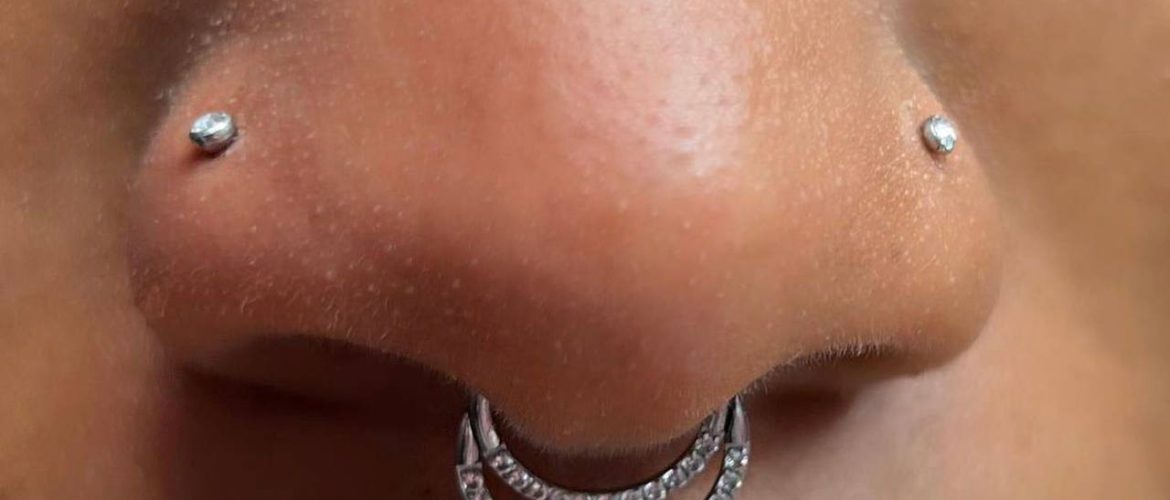Preparing for a body piercing can be an exciting, but nerve-wracking experience. Knowing what to expect and how to best prepare for the procedure will help make your experience as safe and comfortable as possible. This guide outlines the necessary steps you should take before getting pierced so that you can feel confident and prepared when you enter the studio. Read on to learn more!
5 Essential Things You Need to Do Before Getting a Piercing
- Research Piercers and Piercing Studios: You’ll want to research the piercer or studio you plan on visiting in order to make sure they are reputable and experienced. Ask for referrals from friends, family, or other people who have had successful piercings. Check online reviews and visit websites to learn more about their services and experience level.
- Select Your Piercing Jewelry Wisely: Make sure you select a piece of high-quality body jewelry for your piercing—it should be made of an implant-grade metal such as titanium, steel, or gold. It is important to note that cheaper metals (such as nickel) can cause skin reactions or infections and should be avoided at all costs.
- Consider Aftercare: It is important to consider and understand the aftercare requirements for your piercing before you get it done. Ask the piercer about any special cleaning instructions or products you may need. Be sure to follow these instructions closely in order to promote healing and avoid infection.
- Prepare for Discomfort: Understand that getting a piercing can be uncomfortable, but it is not usually painful. It may help to take some pain relievers or have someone come with you for support if you are feeling nervous.
- Know What’s Off-Limits: Finally, make sure that the piercer knows what types of activities should be avoided while your piercing heals such as swimming in public pools, and hot tubs, engaging in extreme workout activities, and more.
By doing your research and preparing for the procedure, you can make sure that your piercing experience is as safe and comfortable as possible.
What to Expect After Getting a Piercing
Piercing aftercare is a crucial part of the healing process for any piercing. You should expect to clean and care for your piercing regularly, including changing jewelry if needed. Your piercer should provide you with detailed instructions as to what products you need to use and how often.
Make sure you follow these instructions closely in order to promote healing and avoid infection. It’s also important to stay away from activities that can damage or irritate the area, such as swimming in public pools or engaging in extreme workout activities. With proper aftercare, most piercings will heal within 4-6 weeks.
If you have any additional questions or concerns about getting a piercing, be sure to consult a professional piercer before doing so. They will be able to advise and guide you through the process so that you can get the most out of your experience.
Common Piercing Myths Debunked
There are many misconceptions about piercings that may cause you to feel uneasy about getting one. Here are some of the most common myths debunked:
Piercing Doesn’t Hurt: While it is true that piercing doesn’t usually hurt, there can still be some discomfort associated with it. It is important to take any pain reliever your piercer recommends if you are feeling nervous or anxious.
You Don’t Need Aftercare: This couldn’t be further from the truth! Aftercare is a vital part of the healing process and should not be overlooked or neglected. Ask your piercer for detailed instructions on how to properly care for your piercing in order to promote healing and avoid infections.
Piercing Leads to Scarring: If done correctly and with proper aftercare, most piercings will not cause any scarring. However, it is important to note that some people may be more prone to scarring than others.
The Risks of Getting a Piercing
Although piercings are generally safe, there are some risks associated with them. These may include:
- Infection:
This is the most common risk associated with piercing and can occur if proper hygiene and aftercare instructions are not followed correctly. - Allergic Reaction:
Some individuals may experience an allergic reaction to certain metals or other materials used in body jewelry. Make sure you select an implant-grade metal such as titanium, steel, or gold for your piercing. - Rejection & Migration:
In rare cases, a piercing can migrate or reject completely over time. Signs of rejection include redness around the area and swelling. Migration occurs when the hole moves away from the original location. - Excessive Bleeding:
If you experience excessive bleeding during or after your piercing, make sure to seek medical attention immediately.
It is important to keep in mind that these risks can be minimized by selecting an experienced piercer and following all of their instructions regarding hygiene and aftercare. However, if you do experience any of these symptoms or have any concerns, it is best to consult a professional as soon as possible.
Understanding the potential risks associated with getting a piercing can help you make an informed decision on whether it is right for you.
Last Words and Key Takeaways
We hope this guide was helpful in preparing you for body piercing. If you have any further questions or need additional guidance throughout this process, please feel free to contact us anytime! We wish you all the best in your journey towards a beautiful, new piercing. Thank you for choosing us as your piercer!
For our readers in Miami, we invite you to any of our 3 Inkaholik locations for a safe and professional piercing experience.




